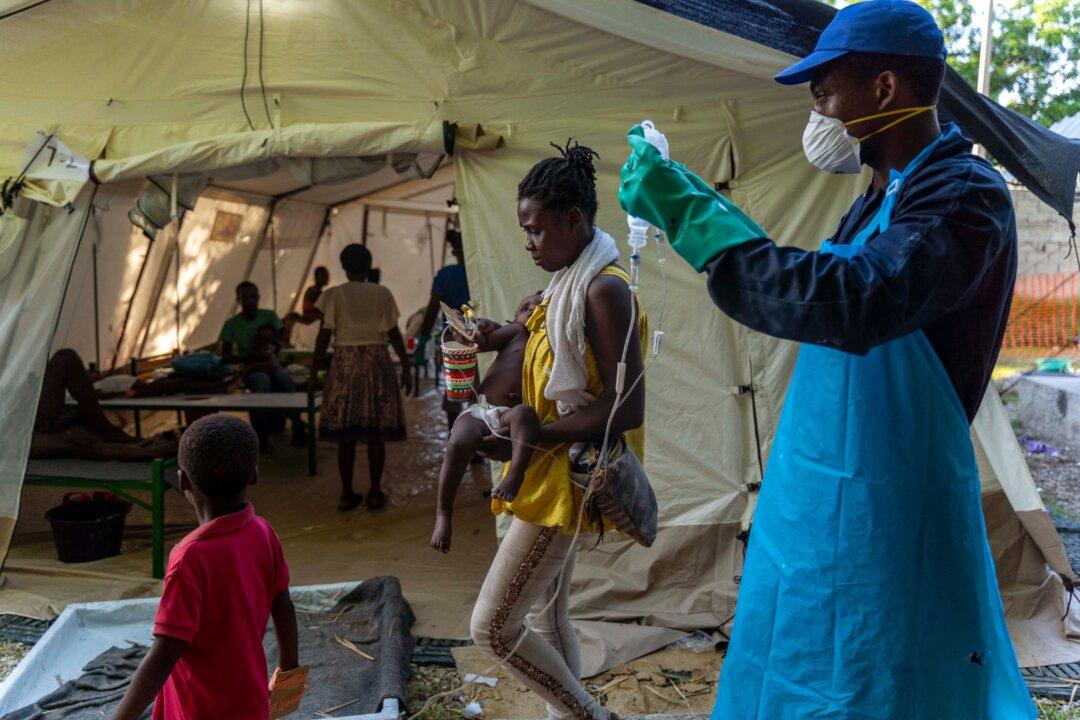GENEVA—There have been 16 confirmed deaths from cholera in Haiti and 32 confirmed cases, a United Nations spokesperson said on Tuesday, citing the latest figures from U.N. humanitarian workers there.
“We are very, very concerned,” Margaret Harris of the World Health Organization, who spoke at a news conference with the U.N. spokesperson, added with reference to cholera outbreaks in Haiti and beyond.





